Every two years, Amnesty International awards a Human Rights Prize, which is funded by the Foundation for Human Rights. The prize honours people who courageously defend human rights, who expose themselves to dangers and repression to help others, who raise their voices where they would otherwise be silenced and who dare to intervene where others look away.

FEDEPESAN President Yuly Velásquez
2024: FEDEPESAN from Colombia
12th Amnesty Human Rights Award
They are fighting for their livelihoods and against the massive environmental pollution of Colombia’s rivers and wetlands – and are being threatened and attacked by armed groups. The traditional fishermen and women of the FEDEPESAN association have been awarded the 12th Amnesty Human Rights Prize for their unwavering courage and commitment.
FEDEPESAN documents the environmental problems, protests, demonstrates and stands for tireless lobbying against official failures. The association is also taking legal action against Ecopetrol, the state oil company. Photo: © Amnesty International, Christina Czybi.
Read more on Amnesty.de

Members of the Ethiopian Human Rights Council
2022: The Ethiopian Human Rights Council
11th Amnesty Human Rights Prize
The Ethiopian Human Rights Council (EHRCO) has been awarded the 11th Amnesty Human Rights Prize.
For more than 30 years, the independent EHRCO has been the voice of human rights in Ethiopia. The employees investigate human rights violations, provide legal advice to those affected and are involved in human rights education. They give a voice to people that would otherwise go unheard.
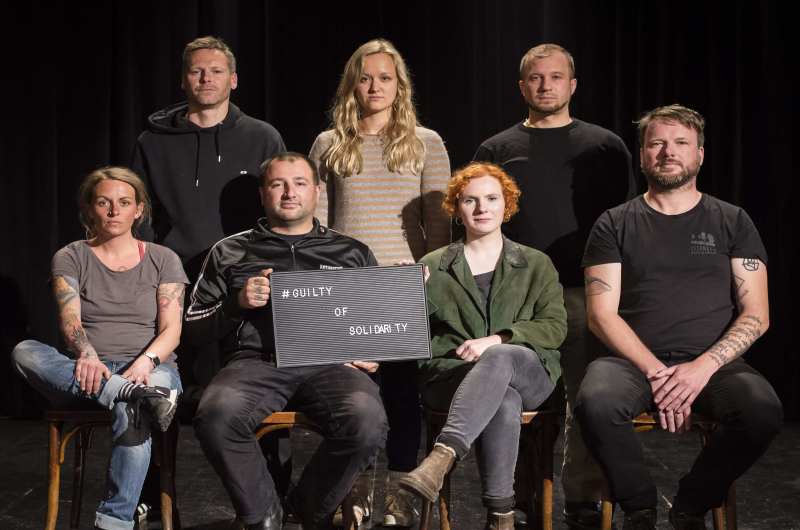
Members of the Iuventa10-Crew
2020: Saviours at Sea
10th Amnesty Human Rights Prize
Since 2017, the Italian judiciary has been investigating crew members of the ship „Iuventa“ for aiding and abetting illegal entry. The ship’s crew rescued refugees from drowning in the Mediterranean.
Amnesty has awarded these crew members – who come from Germany, England, Spain and Portugal – with the Human Rights Prize 2020 for their courage and exemplary commitment to human rights.
Around 200 rotating crew members volunteered on the rescue ship „Iuventa“ between July 2016 and August 2017. During this time, they rescued more than 14,000 people from distress at sea in compliance with international law and were targeted by the Italian law enforcement authorities for this – for obvious political reasons. The Iuventa was bugged, phone calls were tapped and undercover investigators were deployed.
In March 2021, the investigation against six of the ship’s ten crew members was dropped, while the public prosecutor’s office in Trapani/Italy brought charges of „aiding and abetting illegal migration“ against the remaining four. The proceedings against them are still ongoing.
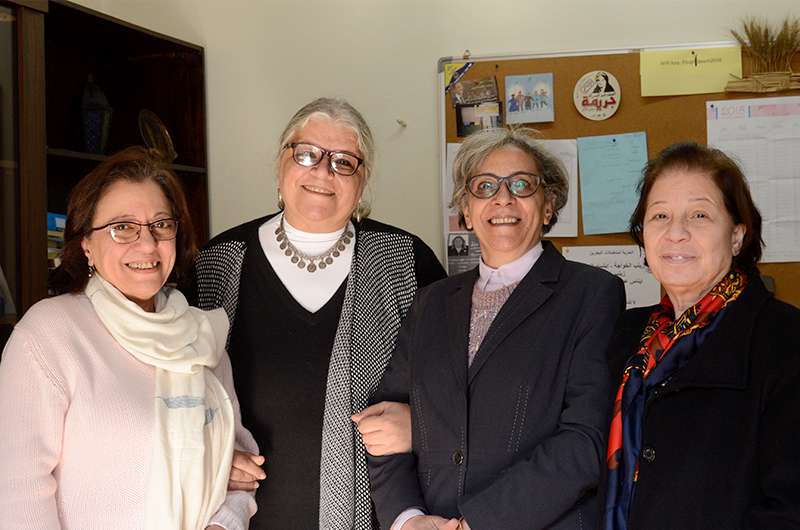
The Directors of Nadeem-Center
2018: El Nadeem Centre Egypt
9th Amnesty Human Rights Prize
The El Nadeem Centre for the Rehabilitation of Victims of Violence and Torture in Cairo has been documenting torture by Egyptian security forces for more than 20 years and operates the only specialist clinic for the treatment of survivors of torture and violence in the country. Since 2016, the authorities have been taking debilitating action against the organisation.
The Egyptian government denies the use of torture. Security forces have repeatedly tried to prevent the Center from carrying out its work. The organization’s accounts were temporarily frozen in 2016 and two of its founders were banned from leaving the country. In February 2017, security forces forced their way into the clinic rooms of the Nadeem Center and sealed them. Nevertheless, the organization continues its work.
„With the award to the Nadeem Center, Amnesty International recognizes its important role for human rights in Egypt. Under the most difficult conditions, the staff of the Nadeem Center provide medical and psychological care to torture survivors and make the serious human rights violations public,“ Amnesty stated in its justification for the award. The award is intended to support all the courageous women and men who are fighting against torture, violence and arbitrariness in Egypt at the risk of their lives.
Picture (from left): Dr. Mona Hamed, Dr. Aida Seif al-Dawla, Dr. Magda Adly and Dr. Suzan Fayad, the directors of the center
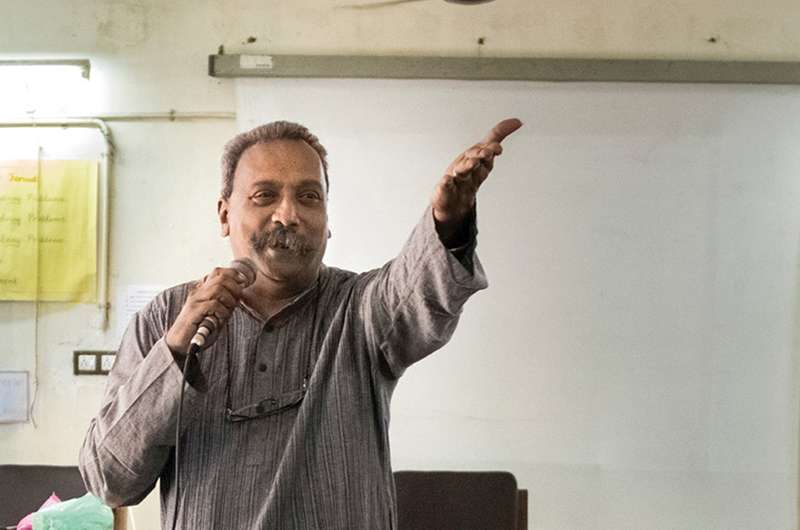
Henri Tiphagne
2016: Henri Tiphagne from India
8th Amnesty Human Rights Prize
„If anyone deserves this award, it’s Henri Tiphagne. He has been working tirelessly for human rights in India for decades,“ said Tara Rao, Programme Director of Amnesty International in India, at the award ceremony in Berlin. „The situation for people who stand up for human rights in India is currently extremely problematic. The country needs more activists like Henri Tiphagne who stand up for the rights of others.“
Since 2010, People’s Watch has systematically built up a network of committed people in India. These people campaign against corruption, for the protection of minorities, for justice, environmental protection and sexual self-determination.
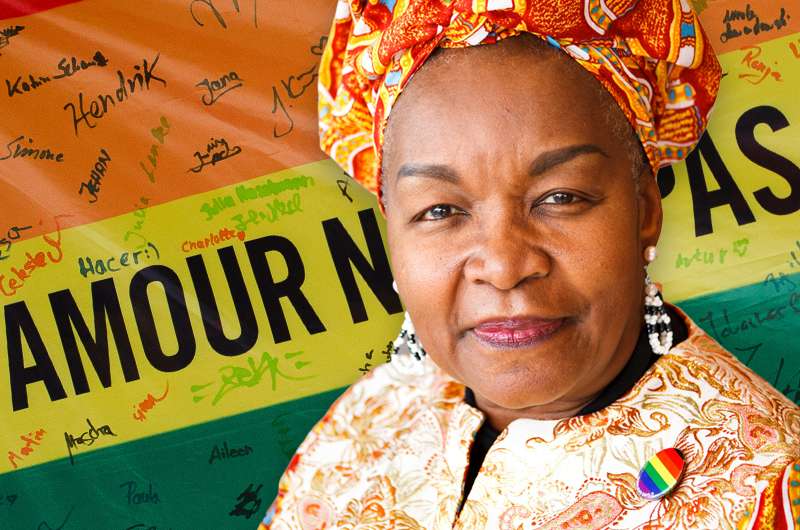
Alice Nkom
2014: Alice Nkom from Cameroon
7th Amnesty Human Rights Award
She is one of the great courageous figures in the fight for human dignity, for all people, regardless of how they live and who they love. The lawyer from Cameroon defends people who are on trial because of their sexual orientation or identity. And that is dangerous: in her country, homosexuality is not only prosecuted under criminal law. Non-heterosexual behaviour is also strongly tabooed and ostracized by society. She repeatedly receives death threats because of her work.
In 2014, Amnesty awarded the human rights prize to lawyer Alice Nkom from Cameroon.
In 2003, she founded the non-governmental organization ADEFHO for the rights of gays, lesbians and transgender people. It was the first organization in Cameroon to dedicate itself to this field. ADEFHO offers medical treatment, psychological counseling, sexual education, mediation, safety training and legal advice.
„In a climate of daily threats, human rights defender Alice Nkom and her staff fight for the rights of lesbians, gays and transgender people in Cameroon at the risk of their lives,“ Amnesty International said in explaining the award. Alice Nkom is a role model for activists throughout Africa.
Nach der Verleihung des Menschenrechtspreises ordnete der Justizminister Kameruns an, keine weiteren Verhaftungen wegen Homosexualität mehr vorzunehmen.
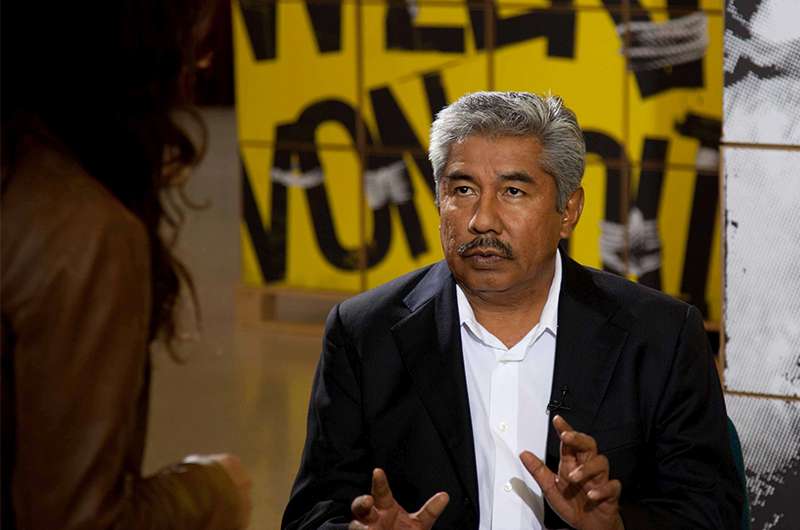
Abel Barrera
2011: Abel Barrera aus Mexiko
6th Amnesty Human Rights Award
„To live here is to be born sick, to live with hunger and in the darkness that illiteracy means…justice is out of reach for the indigenous peoples. They have to come three hours from the mountains, they have to speak Spanish, which only a few can do, they need a lawyer that they can’t afford. We give them access to justice, provide translators.“
This is how human rights activist Abel Barrera describes the situation in the Mexican state of Guerrero.
In 1994, he founded the „Tlachinollan“ human rights center there, which campaigns for the rights of indigenous people and supports them in their fight against impunity for perpetrators and against violence.
The center supports them in their fight against the impunity of the perpetrators and against violence. At considerable risk to themselves, the organization’s staff investigate cases of disappearances and attacks by the military. And they are indeed successful time and again: on the initiative of the center’s lawyers, the Inter-American Court of Human Rights has already dealt with rapes and abuses that were blamed on the military on several occasions and sentenced the Mexican state to pay damages.
Barrera and the Tlachinollan staff have been working tirelessly and at great personal risk for the rights of the indigenous population in the state of Guerrero since 1994. Thanks to its strategic work, Tlachinollan has an impact beyond Guerrero and contributes to the strengthening of human rights throughout Mexico.
More information about the work of Tlachinollan on this website
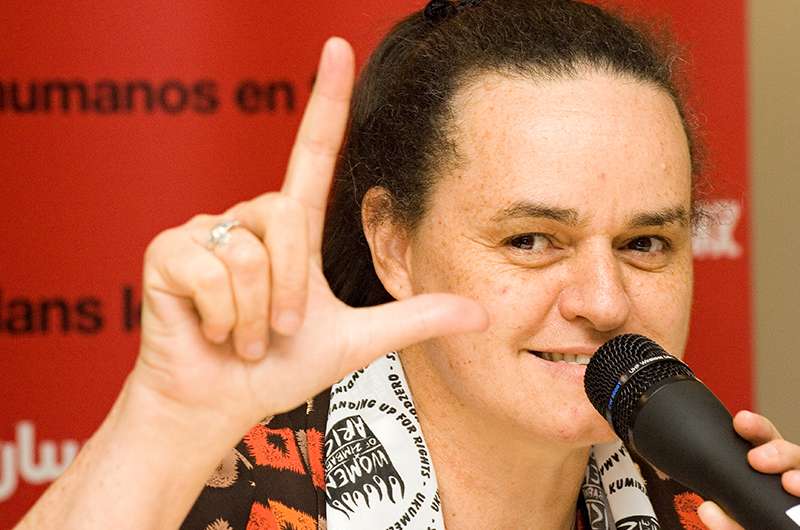
Jenni Williams
2009: Women of Zimbabwe Arise (WOZA) from Zimbabwe
5th Amnesty Human Rights Prize
„Zimbabwe is in an undeclared civil war,“ said the founder of WOZA, Jenni Williams, in her acceptance speech at the 2009 Amnesty International Human Rights Prize ceremony at the Berlin Ensemble. „Instead of bullets, the Mugabe regime is now using hunger against the people of Zimbabwe and at the same time destroying trust in a democratic and constitutional system. These are sophisticated forms of mental and physical torture.“
WOZA has been fighting for the respect for human rights in Zimbabwe since 2003.
Although members of WOZA are repeatedly imprisoned and subjected to brutal repression, the movement now has around 35,000 members, making it the largest civil society organization in the country.
„WOZA is an example for the whole of Africa,“ said Delphine Djibairé, a human rights lawyer from Chad, who presented the award. „African women have to fight two battles at the same time: on the one hand, men have to recognize them as equally entitled and equally capable human beings. And they must enforce human rights in order to improve living conditions for men. Because that will only succeed through women.“
Williams thanked Amnesty International for numerous actions in support of imprisoned WOZA members. „These actions are vital to our survival because they show the perpetrators that the world is watching them.“
And this observation is still necessary after the removal of long-serving President Robert Mugabe in 2017: the human rights situation in Zimbabwe is once again deteriorating drastically. Political spaces are being restricted, protests broken up, opposition members arrested and human rights groups threatened.
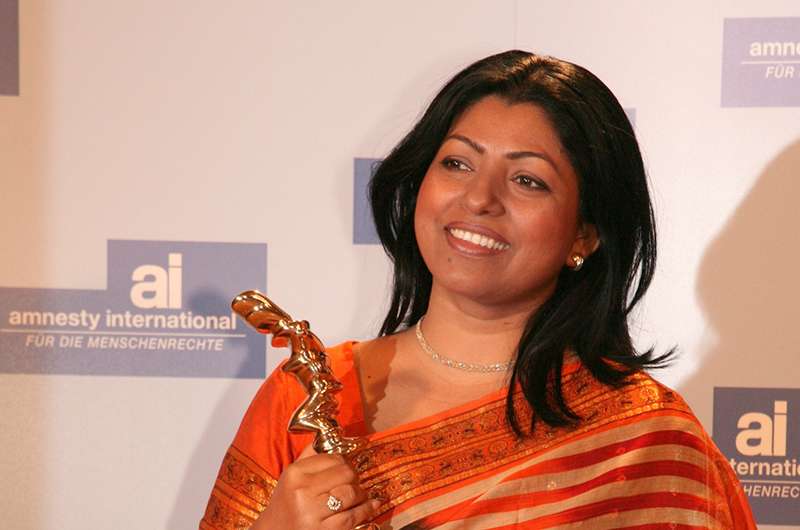
Monira Rahman
2006: Monira Rahman Bangladesh
4th Amnesty International Human Rights Prize
Violence against women is rife in many countries, but acid attacks, intended to burn women’s faces to disfigure them forever, are mainly committed in India, Pakistan and Bangladesh.
According to a United Nations study in 2003, crimes against women were more common than in Bangladesh than any other country.
In 1999, the human rights activist Monira Rahman founded the „Acid Survivors Foundation“ (ASF) in Bangladesh.
An organization that supports survivors of acid attacks and fights for the outlawing of these crimes. The perpetrators are usually men and their motives vary: from sexual rejection by the woman to disputes over dowry and land ownership.
In 2006, Amnesty awarded Monira Rahman the Human Rights Prize, stating: „Monira Rahman and the ASF have exposed one of the most cowardly and cruel forms of violence against women in the world. She has challenged society’s complacency, named the injustice – and she has given hope to the survivors!“
In her acceptance speech, Rahman said: „Since 1999, ASF has assisted 1,148 survivors of acid attacks, that’s 1,148 human fates. To this day, I have no answer as to why a person attacks another person with acid. Acid attacks are a serious human rights violation!“
Only a few perpetrators go to court, many reach an out-of-court settlement with the victim’s family; corrupt police officers and judges often prevent a trial.
Nothing has fundamentally changed in this situation. Even though the number of acid attacks has fallen in recent years, there were still acid attacks on women in 2020, some of whom were under the age of 18.
Copyright der Fotos auf dieser Seite: Amnesty International, Maheder Haileselassie Tadese, Stiftung Menschenrechte, Paul Lovis Wagner (Iuventa 10)